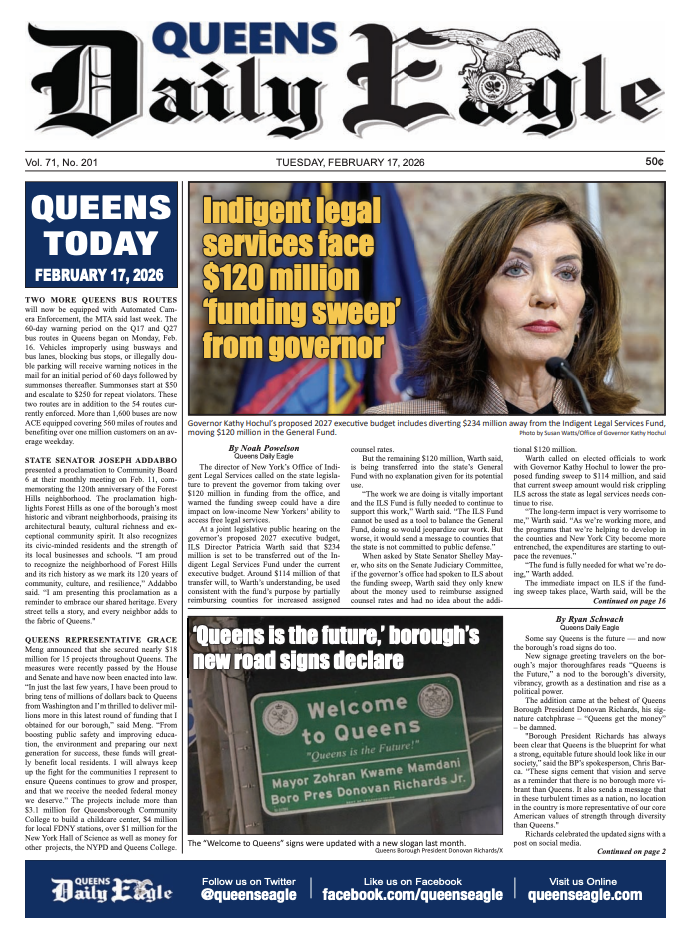State bar outlines legality of vaccine mandates
/Friday’s CLE was led by employment lawyer and Emergency Task force member Michael Passarella. Screenshot via Zoom
By Rachel Vick
The New York State Bar Association held a one credit CLE Friday to help law firms considering vaccine mandates and lawyers representing either either employees or employers to understand mandate’s legality — and challenges.
Employment attorney and member of the NYSBA Emergency Task Force on Mandatory Vaccination and Safeguarding the Public’s Health Michael Passarella led the session based on findings from the task force’s report issued last month, which found precedent for mandates.
“I would expect challenges,” Passarella said. “The issue of vaccinations is not new; while COVID has created an incredible scope of issues, many of the legal issues practitioners are dealing with are not novel.”
“No question, you can mandate vaccination as an employer,” he added. “Of course the devil is in the details.”
Based on legal precedent and the current progression of the COVID-19 data, the report issued by an NYSBA emergency task force recommended that employers require all employees be vaccinated, except for those with legitimate medical reasons or religious concerns.
The key elements to mandates are rooted in the precedent that employees can be required to test for COVID regularly and employer's have the right to ask employees about their vaccination status. It does not prevent employers requiring vaccination to physically appear in the place of work.
He suggested employers give a reasonable amount of time for their staff to comply with mandates — four to six weeks — and to provide written guidance that clarifies whether they are strongly encouraging or requiring vaccination.
Private businesses, however, can not unilaterally institute policies for unionized employees under collective bargaining, because changing terms and conditions is subject to bargaining, he said.
Passarella said providing and determining reasonable accommodation for those who are exempt is “where the rubber meets the road,” and the area where he has had the most clients seeking guidance.
Under the Americans with Disabilities Act, employers are required to provide accommodations for those who are not required to comply for medical reasons. In the context of vaccines, that could include working from home or wearing mask in the workplace — as long as it would not create undue hardship or impact the job.
Under certain circumstances, if there is no way for someone to work without the vaccine they can be fired, but Passarella suggests less permanent solutions like a leave of absence.
Doctors saying an employee does not ”need” the vaccine is different than not being able to get the vaccine, and is one of the few situations Passarella said it might be acceptable to further question a doctor's note.
“We should not be playing doctors,” he said, suggesting employers “tread very lightly” when considering pushback or further questioning of medical exemptions.
Religious exemptions are no longer applicable for healthcare employees in New York, but the report found it applicable for the private sector under Title VII of the civil Rights Act. Employees need only to prove a “sincerely held” religious belief, which does not necessarily need to be an organized religion.
The NYSBA announced that like state court staff, their employees would need to be vaccinated by Sep. 7. Though they cannot force the membership to get vaccinated, the task force recommended stronger action and encouraged other bar associations to follow suit.
“To safeguard public health, we must do everything within our legal powers to make sure everyone gets vaccinated,” NYSBA President Andrew Brown said. “The science and the law are on our side in this effort, in which we must take action to safeguard the largest number of people possible and cannot be held hostage to the opposition of an outspoken minority.”




